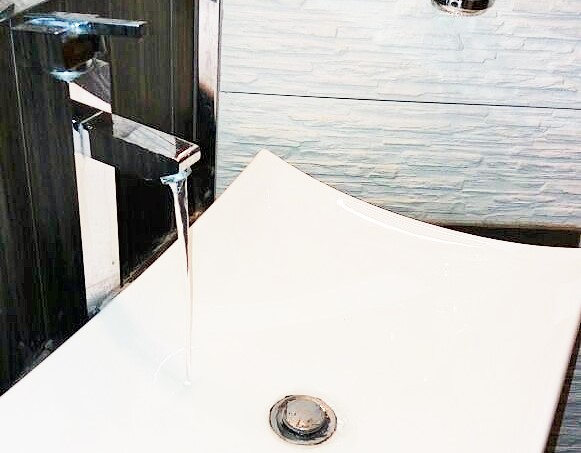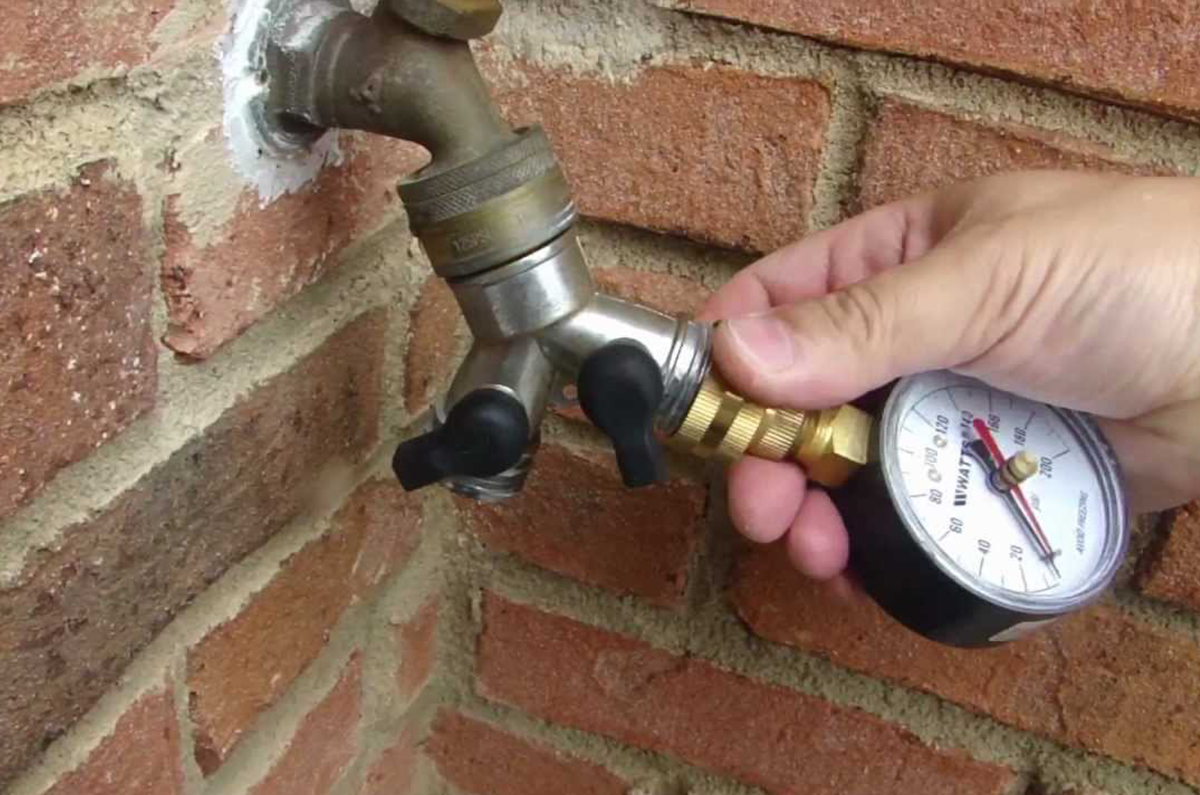Your Instruction to Addressing Low Water Pressure in Your Home
Your Instruction to Addressing Low Water Pressure in Your Home
Blog Article
How do you feel in regards to Dealing with Low Water Pressure in Your Home?

Low water stress in your home can be a frustrating problem, impacting whatever from bathing to washing recipes. If you're experiencing weak water circulation, there are several possible reasons and solutions to discover. In this guide, we'll go over typical reasons for low water stress and practical steps to address the concern successfully.
Introduction to Low Water Pressure
Low tide pressure takes place when the flow of water from your faucets, showers, and other fixtures is weak than usual. This can make day-to-day tasks much more difficult and much less efficient. Comprehending the sources of low tide stress is crucial to discovering the right option.
Typical Causes of Low Water Stress
Faulty Stress Regulators
Pressure regulatory authorities are responsible for keeping constant water pressure in your house. If they malfunction, it can cause low water pressure or unequal flow throughout your house.
Local Water Issues
In some cases, the problem lies outside your home. Municipal water issues, such as main line leaks or maintenance job, can temporarily decrease water stress in your location.
Pipe Obstructions
In time, pipelines can come to be clogged with mineral deposits, sediment, or particles, limiting the circulation of water. This is a common problem in older homes with galvanized steel pipelines.
Rust
Corrosion within pipelines can cause leaks and minimized water pressure. Rust build-up can constrict water circulation, particularly in maturing plumbing systems.
Just How to Identify Low Water Stress
Examining Pipelines
Inspect noticeable pipes for indications of leakages, corrosion, or clogs. Take note of any kind of unusual audios, such as banging or rattling pipes, which might show problems within the plumbing system.
Consulting with a Plumber
If you're unable to pinpoint the cause of low tide stress, think about working with an expert plumber to perform an extensive inspection. They can determine underlying issues and advise suitable remedies.
Checking Taps and Components
Beginning by evaluating the water stress at various faucets and components throughout your home. If the problem is separated to specific locations, it might show localized problems.
DIY Solutions to Repair Low Tide Pressure
Flushing Hot Water Heater
Sediment buildup in the water heater can limit circulation and minimize efficiency. Flushing the storage tank regularly helps remove debris and keep optimal performance.
Checking Pressure Regulatory Authority
Make sure that the stress regulatory authority is functioning correctly. Adjusting or replacing the regulator can help recover proper water stress throughout your home.
Cleaning Aerators and Showerheads
Natural resources can accumulate in aerators and showerheads, minimizing water circulation. Eliminate and cleanse these elements routinely to improve water stress.
Clearing Up Clogs in Pipeline
For small obstructions, try utilizing a plumbing snake or chemical drain cleaner to clear blockages in pipelines. Beware when using chemicals and adhere to safety standards.
When to Call a Specialist Plumber
If do it yourself efforts fall short to settle the problem or if you think substantial plumbing issues, it's best to seek aid from a qualified plumber. They have the know-how and devices to resolve complex concerns safely and successfully.
Preventive Measures to Keep Water Stress
Installing a Pressure Booster
Consider mounting a stress booster pump to improve water stress in areas with regularly reduced flow. This can be especially useful for multi-story homes or residential properties with high-demand fixtures.
Surveillance Water Use
Be mindful of water usage practices and avoid overtaxing the plumbing system. Simple modifications, such as shocking showers and washing tons, can help preserve adequate water pressure.
Normal Maintenance
Arrange regular maintenance for your plumbing system to prevent problems such as corrosion, leaks, and clogs. Dealing with minor problems early can help prevent more substantial repair services in the future.
Conclusion
Taking care of low water pressure can be aggravating, but determining the underlying causes and applying proper services can bring back optimum flow throughout your home. Whether it's cleansing aerators, checking pipelines, or talking to a plumber, taking aggressive actions can make sure a steady supply of water for your day-to-day needs.
How to Fix Low Water Pressure In Your Home
Municipal Water Supply Issues
Scheduled maintenance, high demand, and water main breaks are all potential causes for low water pressure within a city or county’s water lines. While there’s not much you can do to personally fix a problem with your city or county’s water supply system, you can play a big role in documenting the issue and alerting those who can.
How to fix it:
Ask your neighbors if they are experiencing any issues with low water pressure. If multiple homes are affected, it’s likely related to the city’s water line. Contact the local Water Authority to see if there is any maintenance taking place that might be affecting your supply. Also let them know of your specific issues. If other homeowners report the same issues, they’ll know that there could be a larger issue to look into. Faulty Fixtures
A damaged or clogged shower head, faucet or appliance is the first thing we’d suggest checking, especially if low water pressure appears to be isolated to a specific area of your home.
How to fix it:
First, turn off the main water supply to your home. Check the affected appliances for build-up or debris. In the case of a faucet, you can simply unscrew the aerator at the tip of the faucet. Showerheads should be fully detached from the water pipe. While the appliances are detached, you may want to check the water supply to determine if the fixtures were in fact the issue. To clean, soak the showerhead or aerator in vinegar and brush off any visible debris. Reattach the fixtures and check the water pressure again. If it is still low, there is likely a deeper issue at hand, which can be determined by a professional plumber. Pipe Obstructions
Mineral deposits, rust or other debris within water pipes can lead to blockages or corrosion over time.
How to fix it:
When you think of a clog, you probably think of a drain clog. While there are many DIY solutions to clearing a drain, clogs in a water pipe will almost always require the help of a professional plumber. A plumber will be able to locate the affected pipe and clean out any debris or mineral deposit buildup. In severe cases, the pipe may need to be replaced. Your plumber might also recommend a water softening system to remove the minerals from your home’s water supply that can contribute to pipe blockages over time.
Plumbing Leak
Undetected water line leaks can divert water away from your residential pipes, reducing the water pressure in your fixtures.
How to fix it:
Check your water meter by turning off all water sources and monitoring the meter for any movement, which could be a clear indicator of a potential leak. Check all visible pipes for signs of leaking, including water stains, active dripping or damp spots around the pipe. Inspect fixtures, including faucets and showerheads, for any drips. Test the pressure but recording the pressure with the main water valve shut off. Leave off for a few hours and test again. A significant drop in pressure is a clear sign of a leak. https://kiddcoplumbing.com/plumbing-blog/how-to-fix-low-water-pressure/

As a person who reads on 10 Reasons for Low Water Pressure in Your House, I assumed sharing that piece of content was really helpful. Appreciated our piece? Please share it. Help someone else find it. I love your readership.
Book With Us Today! Report this page